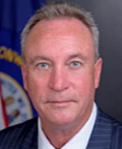Businesses are pitching local governments to give them money from the national opioid settlement; Ky. advisers say to go slow

Information for this story was also gathered by Kentucky Health News.
KFF Health News
The pitches are bold and arriving fast: Invest opioid settlement dollars in a lasso-like device to help police detain people without Tasers or pepper spray. Pour money into psychedelics, electrical stimulation devices, and other experimental treatments for addiction.
Opioid manufacturers and distributors are paying more than $54 billion in restitution to settle lawsuits about their role in the overdose epidemic, with little oversight on how the money is spent. KFF Health News and Kentucky Health News are tracking how state and local governments use or misuse the cash.
The marketing pitches land daily in the inboxes of state and local officials in charge of distributing money from the settlements in opioid lawsuits over the next two decades or more. Kentucky is getting $900 million, split evenly between the state and local governments.
The money is coming from an array of companies that made, sold, or distributed prescription painkillers, including Johnson & Johnson, AmerisourceBergen and Walgreens. Thousands of state and local governments sued the companies for aggressively promoting and distributing opioid medications, fueling an epidemic that progressed to heroin and fentanyl and has killed more than half a million Americans. The settlement money, arriving over nearly two decades, is meant to remediate the effects of that corporate behavior.
But as the dollars land in government coffers — more than $4.3 billion as of early November — a swarm of private, public, nonprofit, and for-profit entities are eyeing the gold rush. Some people fear that corporations, in particular — with their flashy products, robust marketing budgets, and hunger for profits — will now gobble up the windfall meant to rectify it.
“They see a cash cow,” said JK Costello, director of behavioral health consulting for the Steadman Group, a firm that is being paid to help local governments administer the settlements in Colorado, Kansas, Oregon, and Virginia. “Everyone is interested.”
Tim Sturgill, general counsel for the counties association, said it has hired a new employee, starting Jan. 4, who will help county officials understand both what they can and should do with the money.